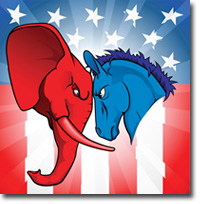Social welfare organizations exempt under Section 501(c)(4) currently are being put under the magnifying glass on several fronts. We’ve previously posted about how these organizations have become more politically active recently—particular in light of the Citizens United decision—and how this increased involvement has been controversial.
As a brief recap, 501(c)(4) organizations historically have been allowed to participate in some amount of political activity so long as it isn’t their primary purpose (unlike charitable 501(c)(3) organizations, which face an absolute prohibition on this type of activity). However, the amount of activity that they can legally engage in has never been fully articulated. As concerns grow about increasing amounts of money flowing to 501(c)(4) organizations for political activity—money for which donor information generally does not need to be disclosed—several different groups are taking aim at this allowance.
For example, last month a lawsuit was filed against the IRS over its regulations interpreting Section 501(c)(4). The Internal Revenue Code states that 501(c)(4) social welfare organizations need to be operated “exclusively” for the promotion of social welfare. However, the IRS regulations interpreting this provision state that an organization is operated exclusively for the promotion of social welfare if it is “primarily engaged in promoting in some way the common good and general welfare of the people of the community.” The complaint alleges that the regulations are arbitrary, capricious and inconsistent with the Code. Several commentators have noted that they expect this case to be dismissed on standing grounds, however.
Also, a New York Times column yesterday focusing on Senator Carl Levin (D-Michigan and member of Senate Permanent Subcommittee on Investigations) hinted at another potential battlefront. Levin said that in the next few months, the permanent subcommittee plans to call the Internal Revenue Service to task on the 501(c)(4) issue. “Tax-exempt 501(c)(4)s are not supposed to be engaged in politics,” he said. “We’re going to go after them.”


